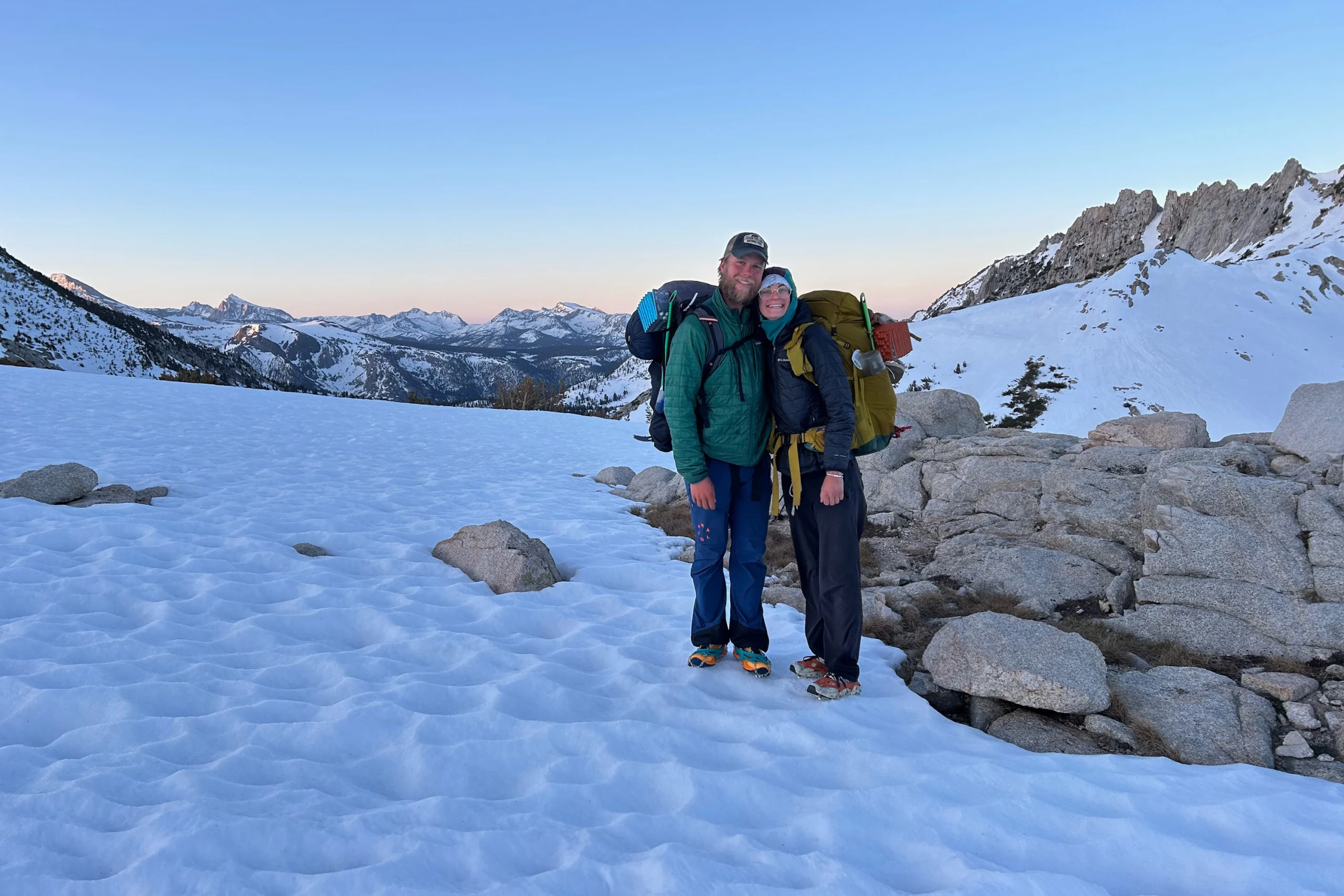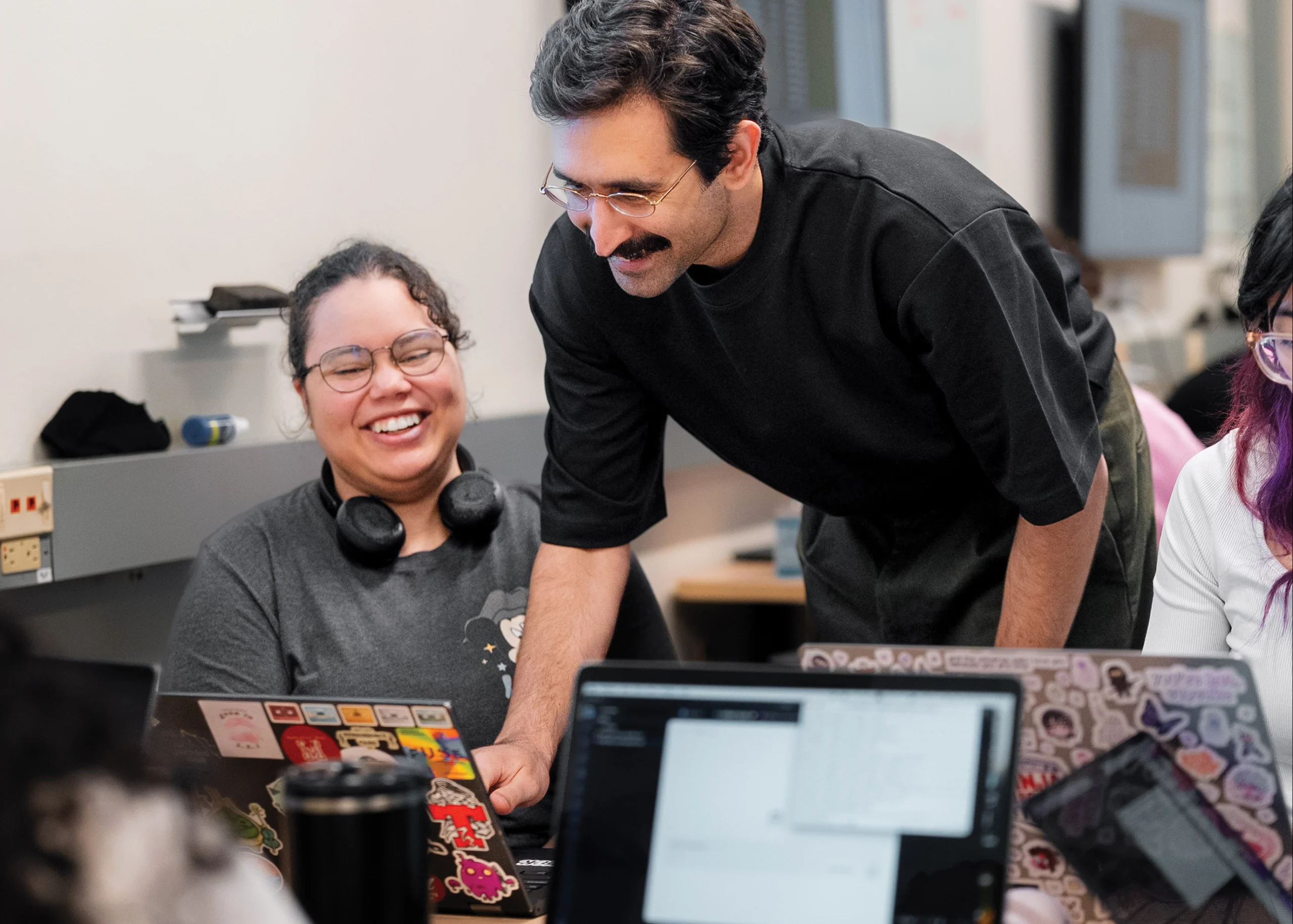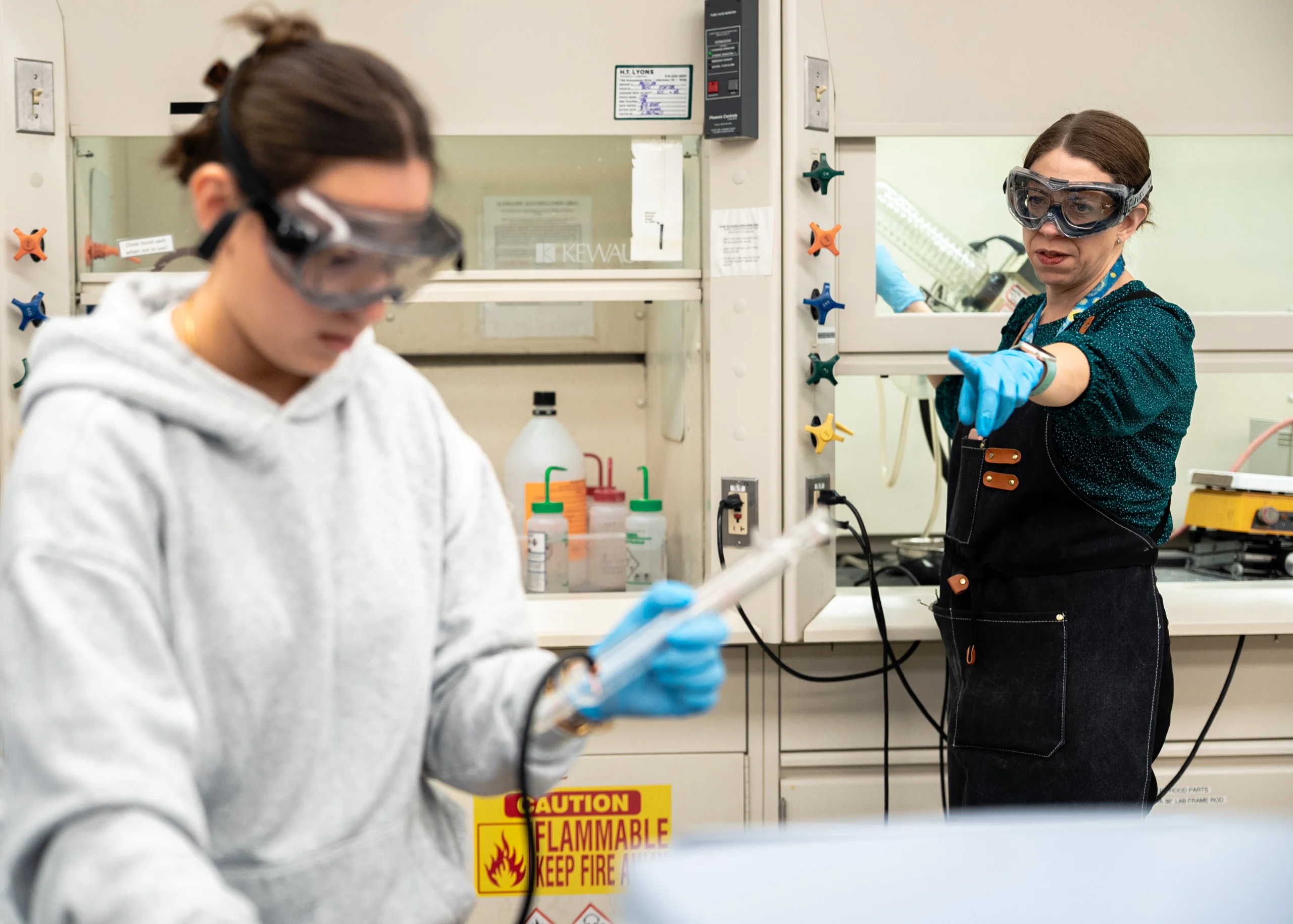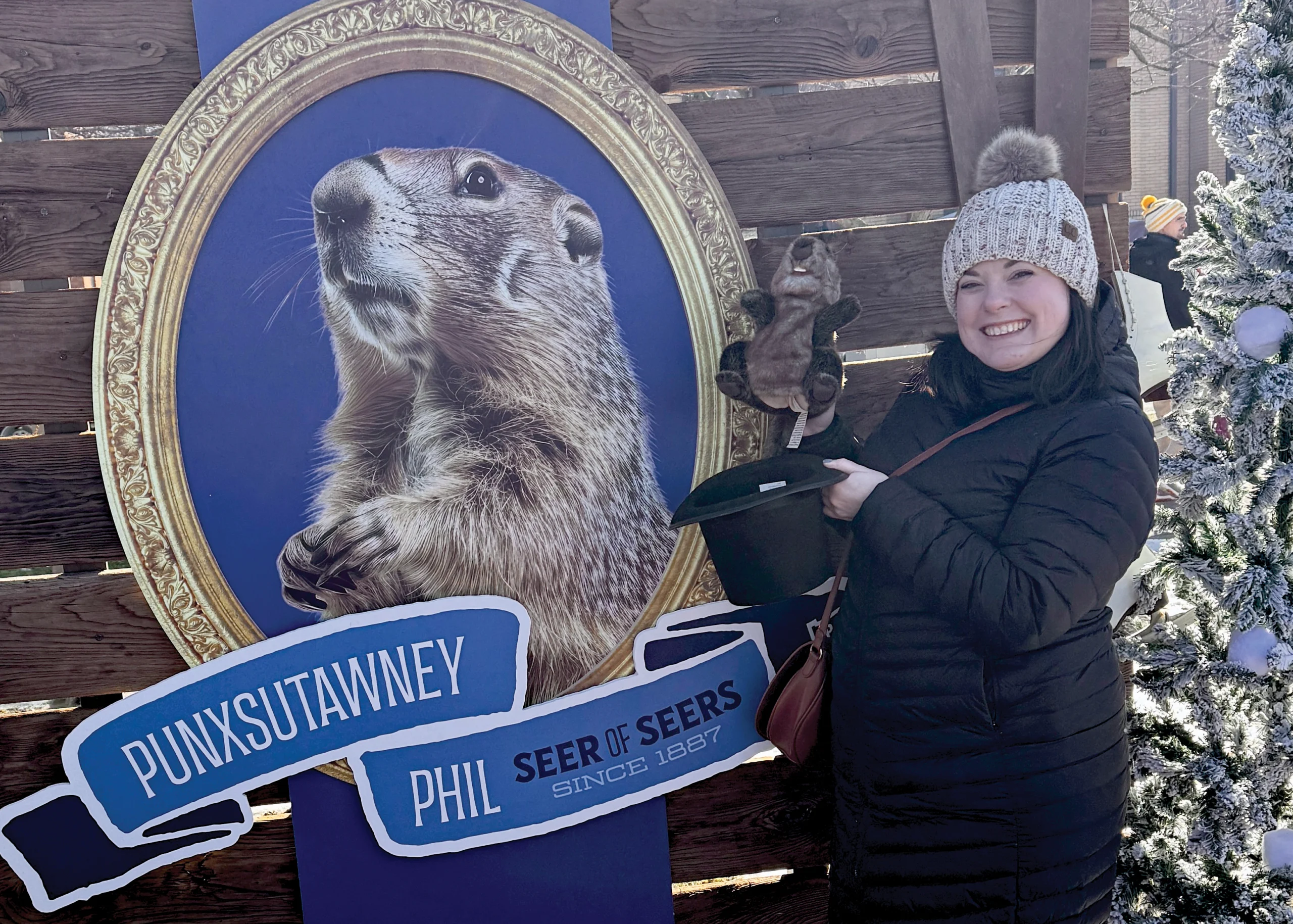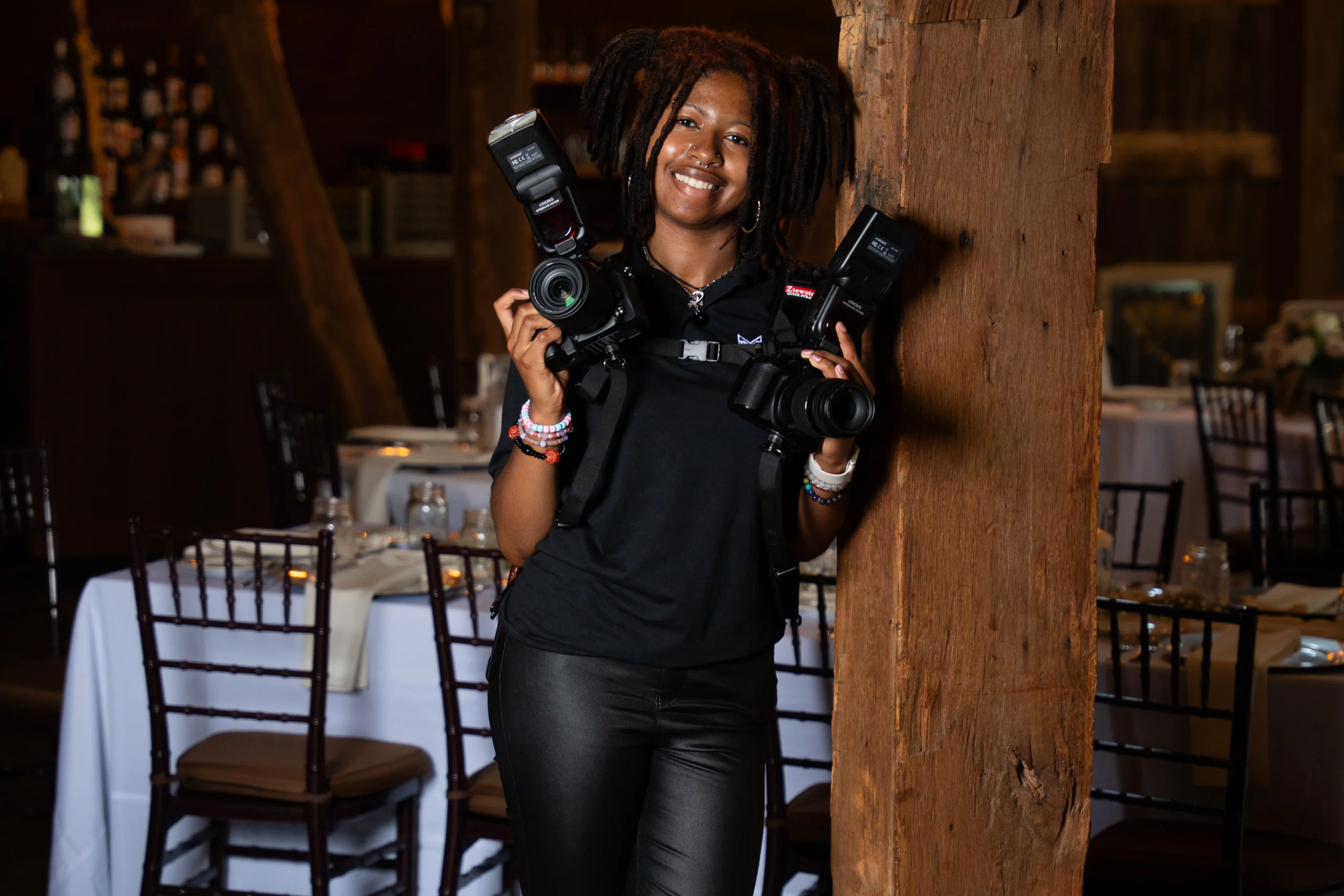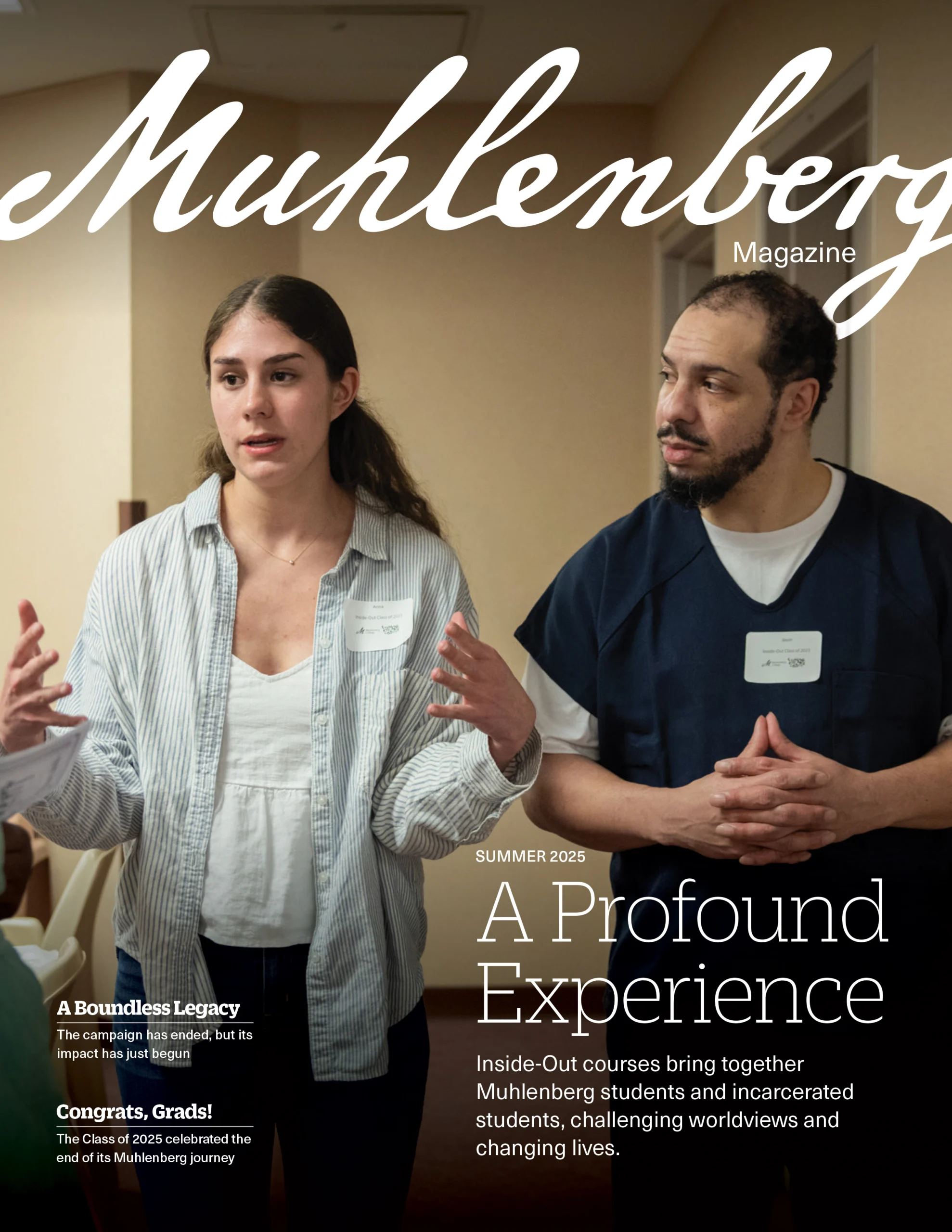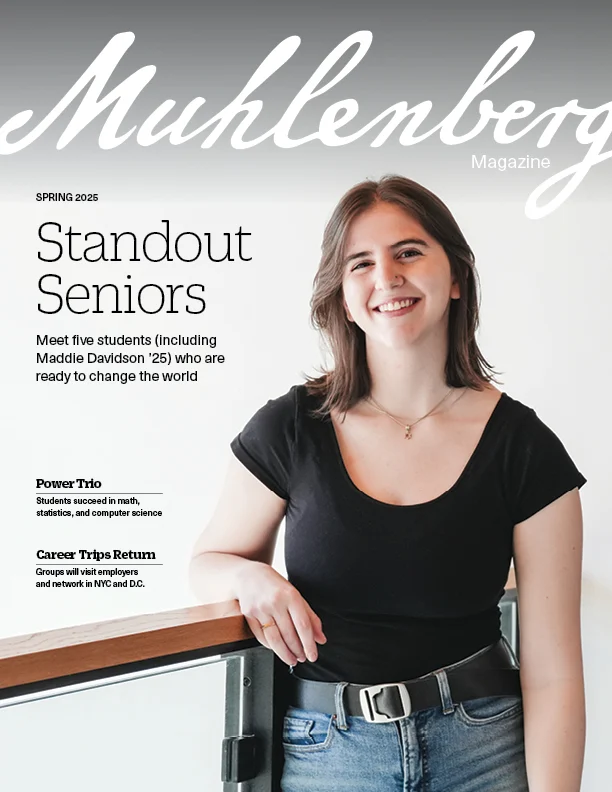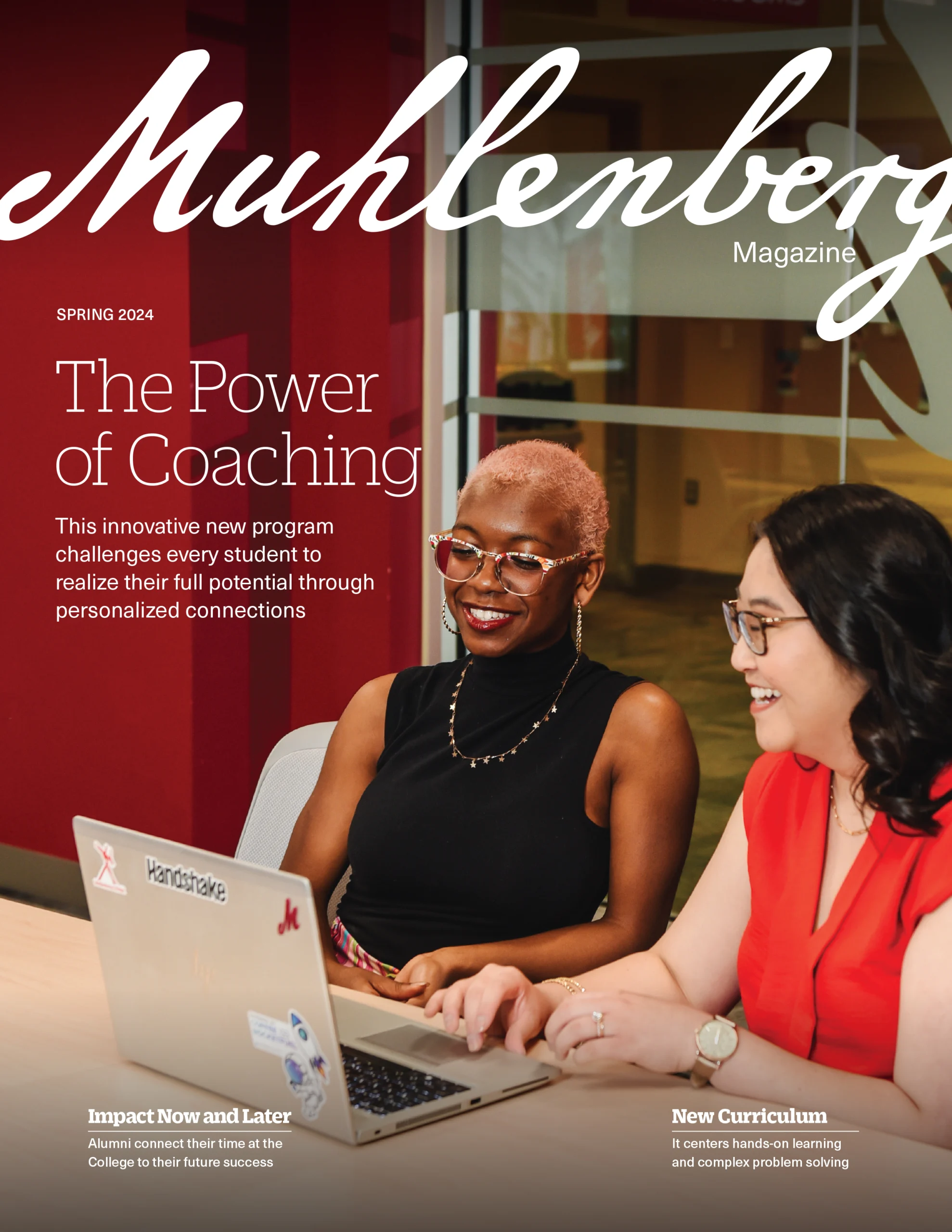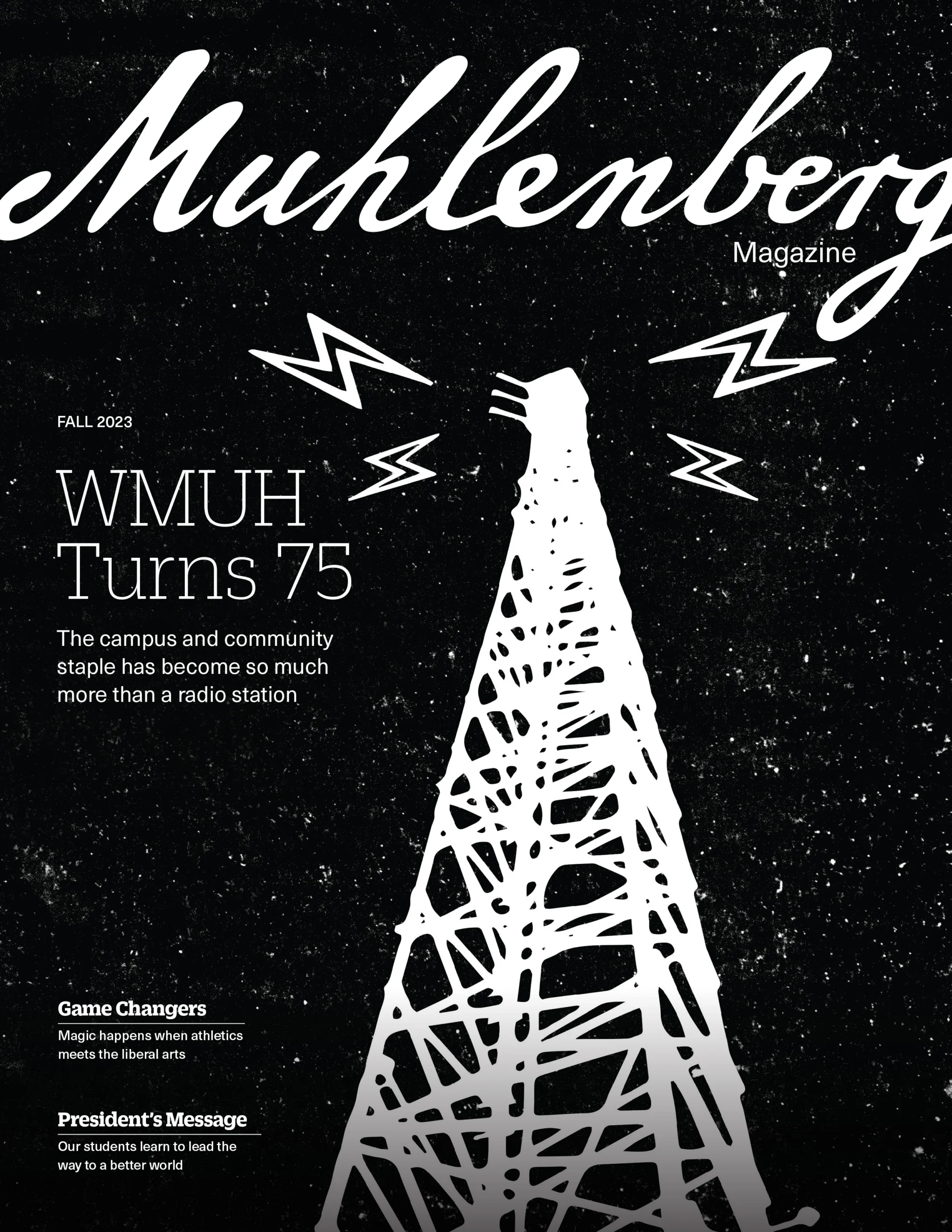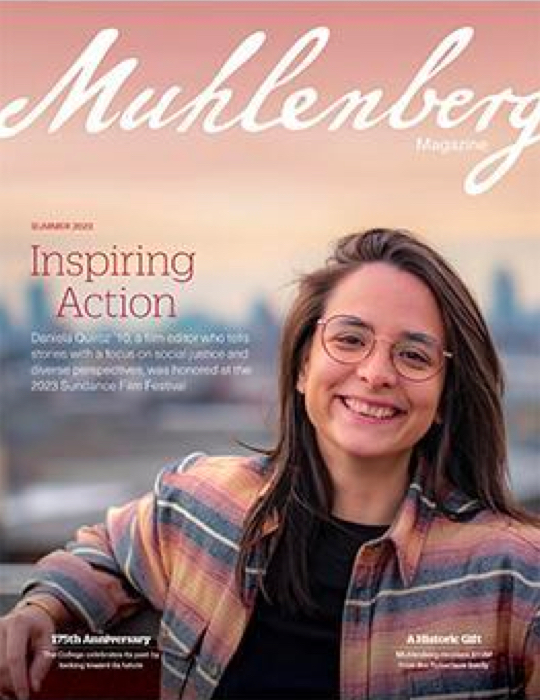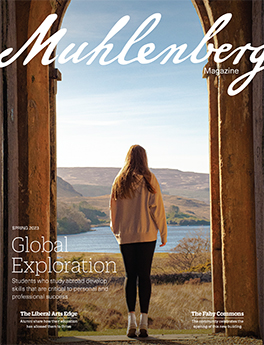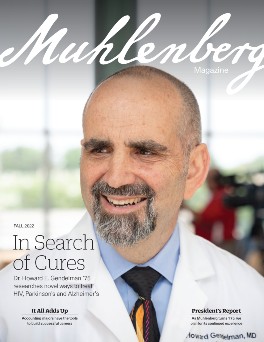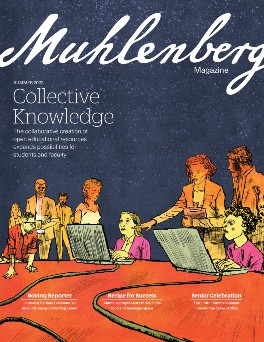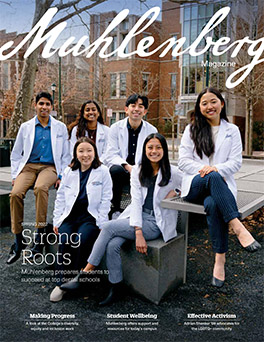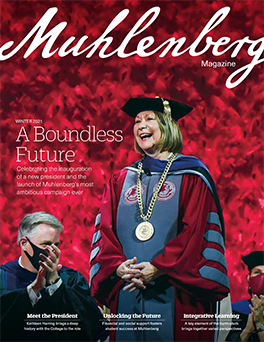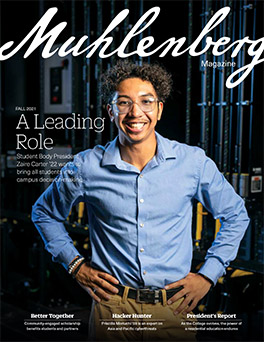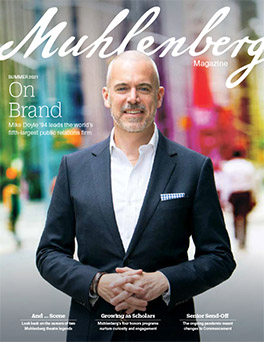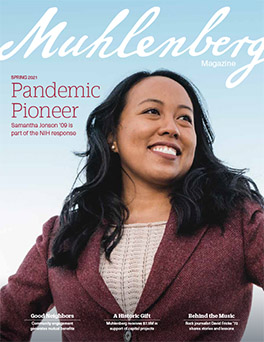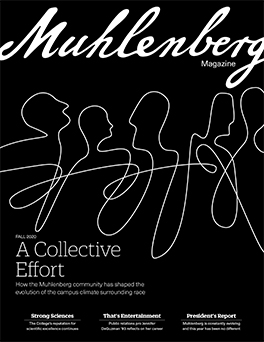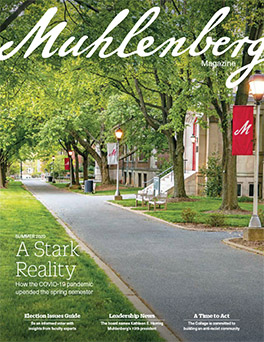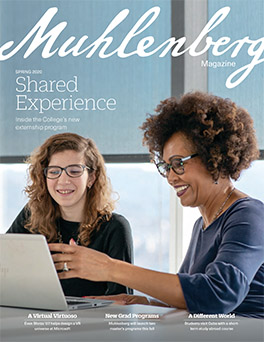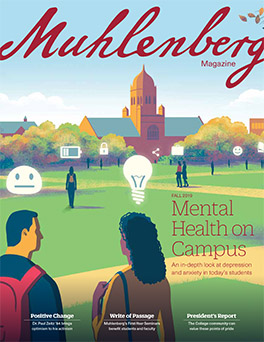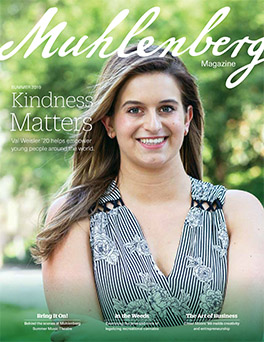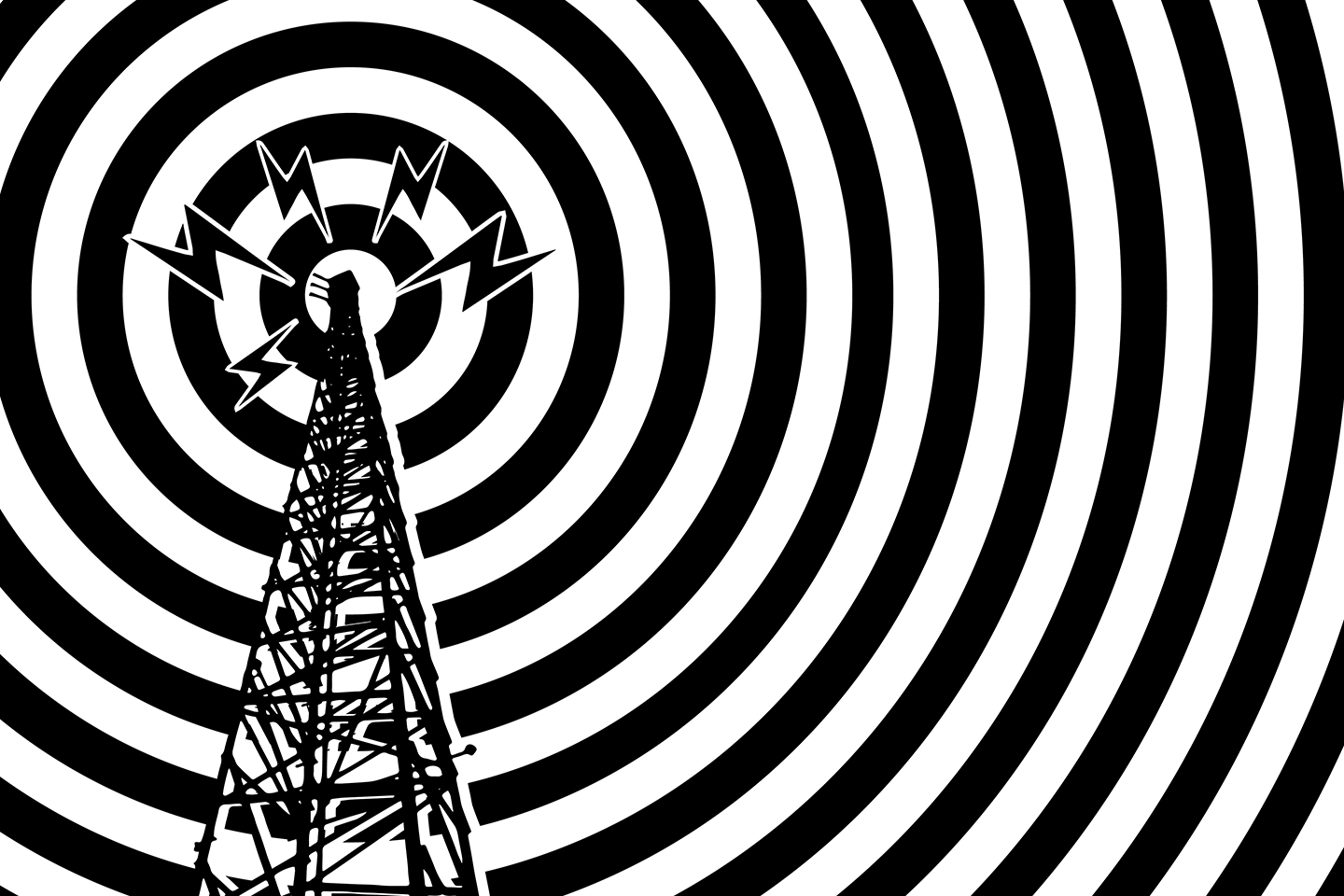
75 Years of WMUH, The Only Station That Matters
WMUH has grown into so much more than a radio station. It’s a place where student and community DJs, some of whom have been on the air for decades, work side by side. It’s a venue for listeners to learn about new music and for hosts to learn how to create something worth listening to. It’s a launching pad for careers, in the music industry and beyond. And it’s part of an ecosystem that’s preparing Muhlenberg students to work in emerging media.
During Alumni Weekend in September, an enthusiastic group of alumni and friends of the College gathered in Moyer Hall’s Miller Forum for a panel and discussion celebrating WMUH’s 75th anniversary. Audience members sipped The Only Beer That Matters, a pilsner produced in collaboration with Emmaus’ Funk Brewing Company to honor the occasion, as the panelists (former general manager Joe Swanson and former station managers Michelle Rajan ’21 and Suzanne Searfoss-Krempasky ’92) shared their memories.
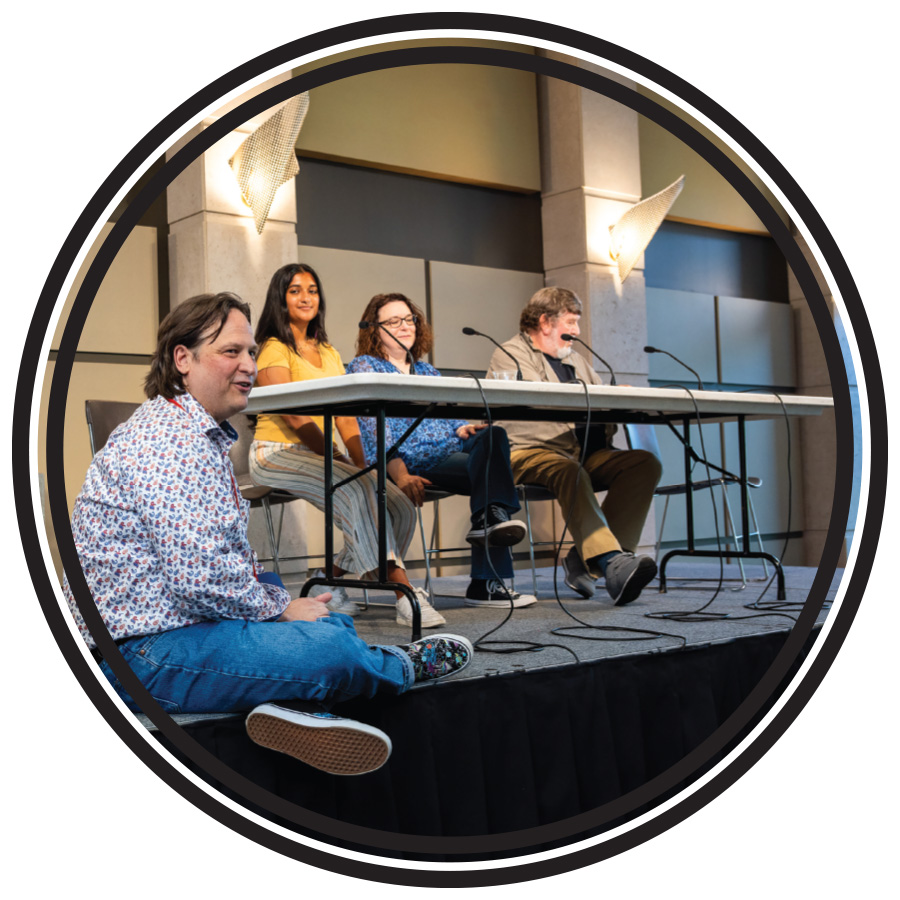
When the floor opened for comments and storytelling, Ira Goldberg ’56 went first — he remembered the station getting its first transmitter in 1952. Dr. Bob Gurdak ’78, Monica Sztybel ’89 and Dale Van Wieren ’73 spoke next, all with fond recollections of being among the first to hear new music, or being able to play music no other station was playing, or, in Van Wieren’s case, taking five years to graduate because he spent so much time at WMUH.
Then, Michael Falkenberg ’96 rose to speak: “You might be able to tell, I’m not from around here,” he drawled. He’s a lawyer based in Austin, Texas, who proudly joined the ranks of WMUH community DJs when the pandemic required everyone to record their shows at home and send them in for broadcasting. He has continued to fill in that way from time to time during summer breaks.
“I am not an Alumni Weekend kind of guy. I’ve never done this before. I might not ever do it again. But if it’s WMUH’s 75th anniversary, by god, I’m gonna be here,” he continued. “It was a place at Muhlenberg where we all fit in … We all had a home at WMUH.”
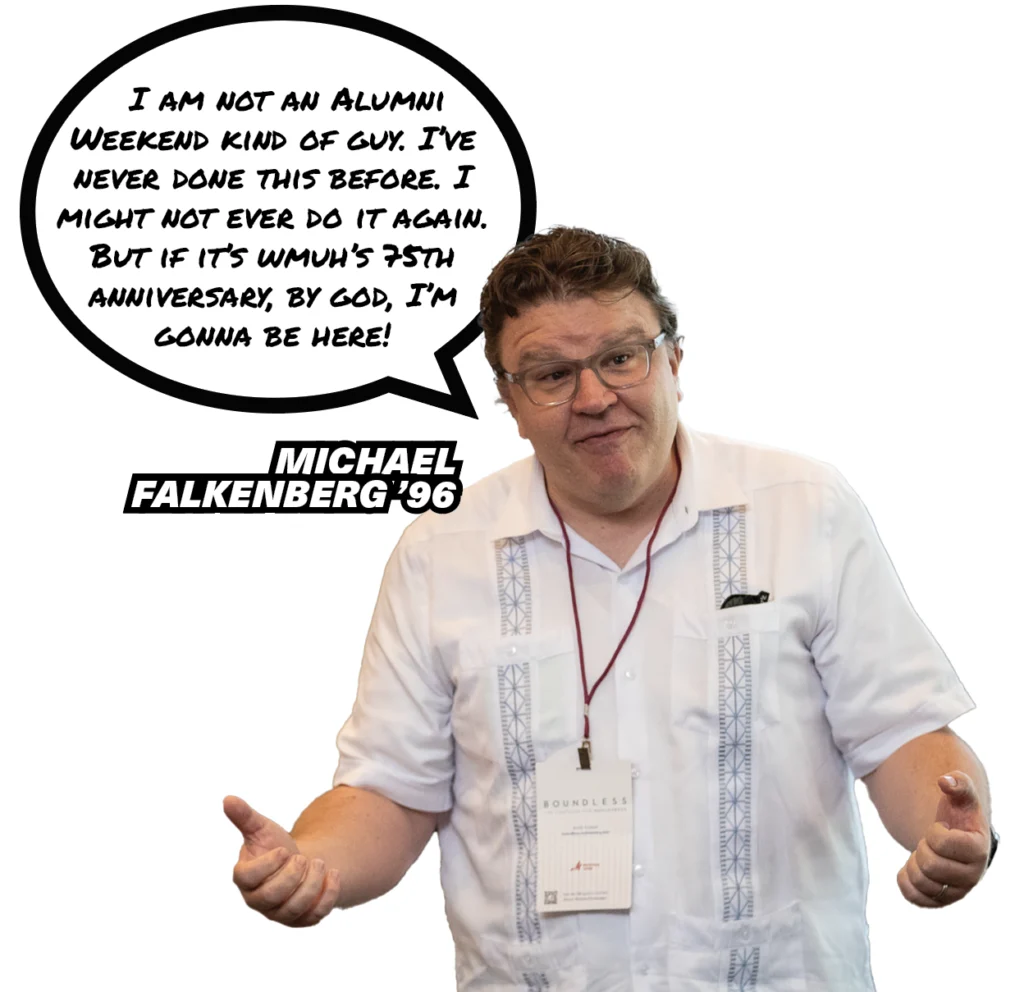
The room erupted into applause. The sentiment resonated with multiple generations of Mules and community DJs alike, whether the “home” they were most familiar with was located in the basement of Haas (1951-1965), in Seegers Union (1965-2001, with a move within the building taking place in 1988) or in Walson Hall (2001-present). WMUH has long been a place that welcomes fans of all kinds of music to share their favorite tracks with the world.
“We do not have a broadcast major. The people who come to work here as students are people who are interested in being involved in radio,” says General Manager Paul Krempasky, whose first broadcast as a community DJ was in 1984. (If that name looks familiar: Yes, he is married to Searfoss-Krempasky, and yes, they met at the radio station.) “You really have to be interested in doing this, and there is that love of music and that sense of, ‘I’ve got something to say and I say it through the act of curation.’”
Unlike many other radio stations — college stations included — WMUH follows a free-form model, meaning that DJs can play whatever they want, whenever they want. In a given day, or even within a given show, you might hear artists as disparate as Britney Spears, Insane Clown Posse, Lyle Lovett and CAN, says Krempasky, “which is either something you really love or it drives you crazy.”
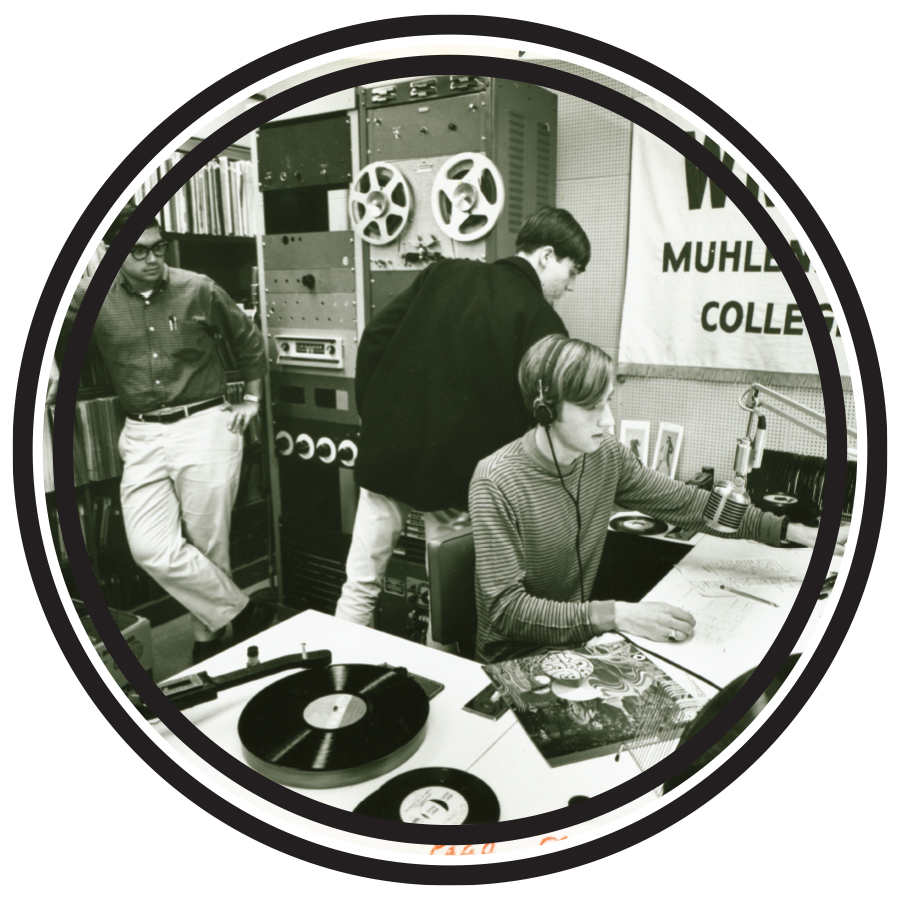
In the process of sharing their favorite music, student DJs learn how to express themselves, to speak on microphone, to present their music and themselves to an audience across the Lehigh Valley and, through online streaming, the world. Student leaders at WMUH build experience managing people, projects and organizations; sifting through new releases; and organizing and promoting events.
While a few of these students ultimately find success in the music industry — like award-winning music journalist David Fricke ’73 and band manager Rennie Jaffe ’98 — most do not, nor do they aspire to. Recent station managers have majored in chemistry, neuroscience, computer science, theatre and mathematics and have pursued those avenues after graduation. Still, students routinely find that the skills they’ve built at the station transcend industries, a powerful outcome that speaks to the continued relevance of working in radio (read more).
“While WMUH has served as a platform for Muhlenberg College students, faculty and staff to develop and share their voices, it has become much more than just a broadcast radio station,” says President Kathleen Harring. “It is an avenue for students to pursue passions across disciplines. It gives students the ability not just to learn but to do — to create and make an impact now.”
What WMUH Means to Me
We asked WMUH alumni to reflect on their time at the radio station and how it affected their lives at Muhlenberg and beyond.
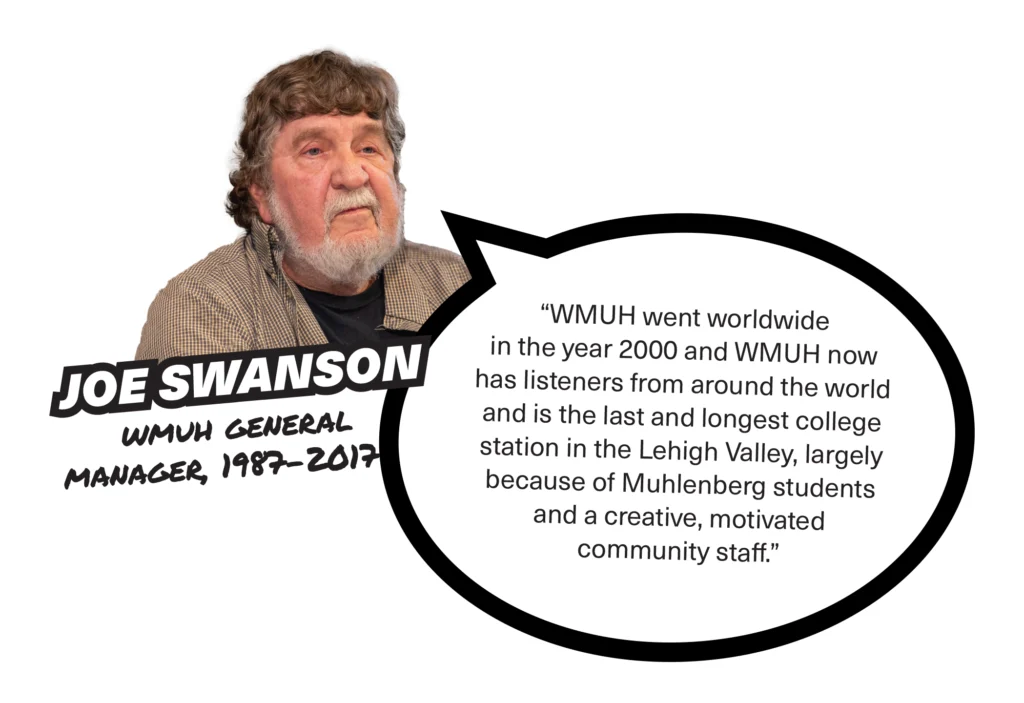
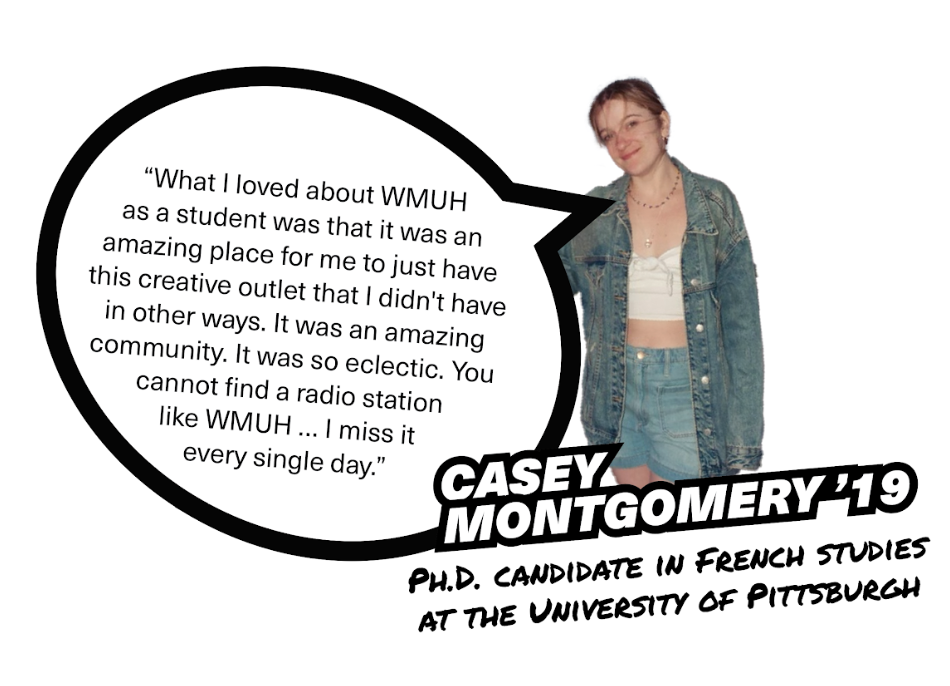
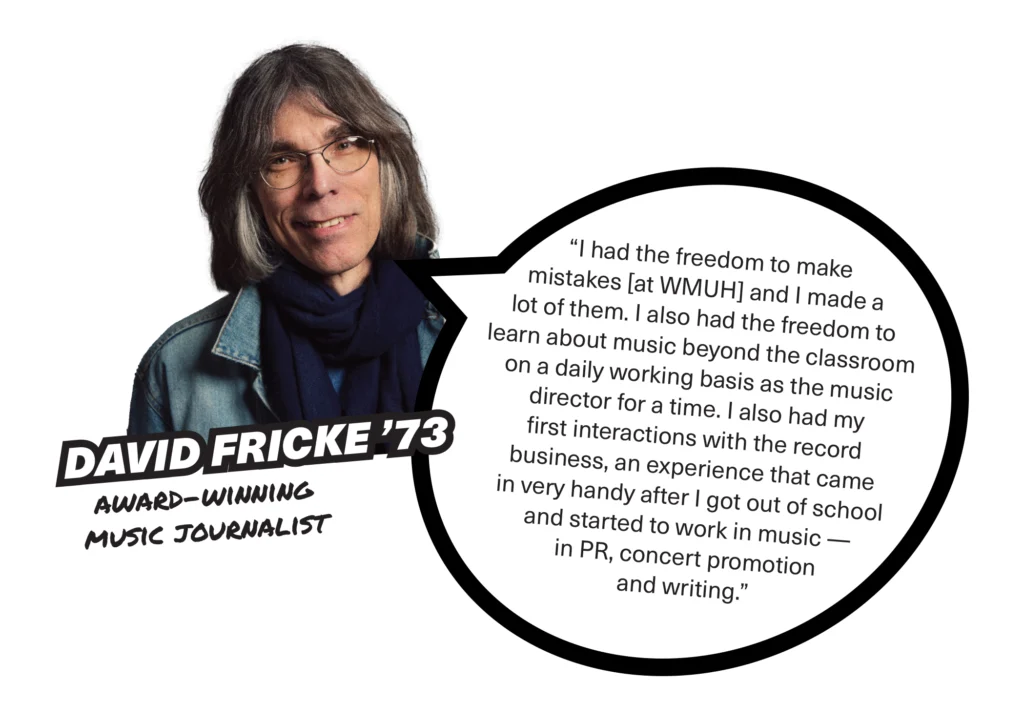
![A photo of Michelle Rajan '21, analyst at Deloiite, with a speech bubble that reads, "WMUH prepared me for [my] career by forcing me to become comfortable with talking to strangers and to trust that even if it feels like I’m just talking to myself, the right community will always find me. This is so important in the corporate world."](https://magazine.muhlenberg.edu/wp-content/uploads/2023/11/WMUH-Quote-4-1024x703.webp)

